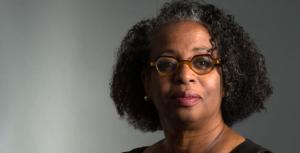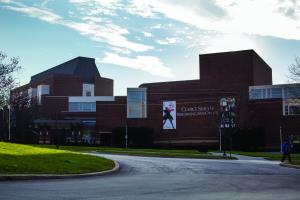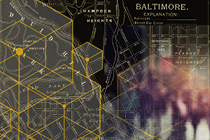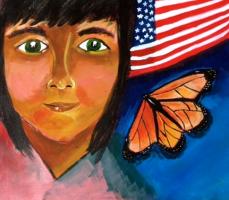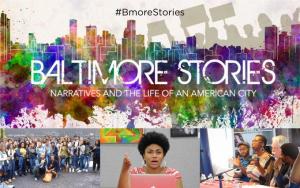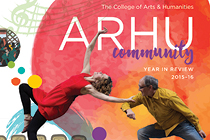The Center for Synergy in the College of Arts and Humanities (ARHU) has received a $100,000 grant from the National Endowment for the Humanities (NEH) to fund “Home Stories,” a digital storytelling project that empowers migrant youth to create and share their stories with the wider public.
The award is part of NEH’s inaugural Humanities Access grants, which provide cultural programming to underserved groups and were awarded to 34 organizations. The grant is designed to encourage fundraising and sustainability of ongoing programming.
The project co-directors are Ana Patricia Rodríguez, associate professor of Spanish and Portuguese in the School of Languages, Literatures, and Cultures and Sheri Parks, associate dean of research, interdisciplinary scholarship and programming and associate professor of American studies.
The project responds to the growing number of often-unaccompanied migrant youth who travel to the U.S.-Mexico border and eventually seek to reunite with families, relatives or friends who live in the long-standing Central American communities near the University of Maryland. These newcomers navigate multiple identities but rarely have the opportunity to reflect on or share these experiences. Despite the scale of youth migration to this area, there is little research or ethnographic work generated about or by these youth.
“We are living in a historical moment where there is an explosion in migration,” says Rodríguez. “Digital storytelling is a way of uncovering these stories and making them accessible to a wider public, and it is something that anyone can learn.”
“Home Stories” extends the Center for Synergy’s ongoing Social Innovation Scholars Program into the public humanities. Through the project, undergraduate students at the University of Maryland will enroll in a multi-semester course with Rodríguez to learn about the migrant experience while collaborating with migrant youth from local middle and high schools to explore digital storytelling. Digital stories are multimedia movies that combine voiceovers, video, sound and text to create a narrative. Both in and out of the classroom, they are a tool for not only developing technical skills, but also promoting self-reflection and critical thinking.
“The project is a way of connecting students who have the technological skills with migrant youth in communities who have important stories to tell,” says Rodríguez. “Digital storytelling is a democratizing tool that allows these stories to be created and shared across communities.”
The project will work with youth in local schools that enroll large numbers of recently arrived migrant youth from Central America, Mexico, and the Caribbean and culminates in a community screening of the filmed stories these youth produce, which will then be available on a public website.
“The humanities help us study our past, understand our present, and prepare for our future,” says NEH Chairman William D. Adams. “The National Endowment for the Humanities is proud to support projects that will benefit all Americans and remind us of our shared human experience.”
Image Credit:
Close up of Child Migrant Quilt Project (September 2014)
© Ana Rosa Ventura-Molina 2014



